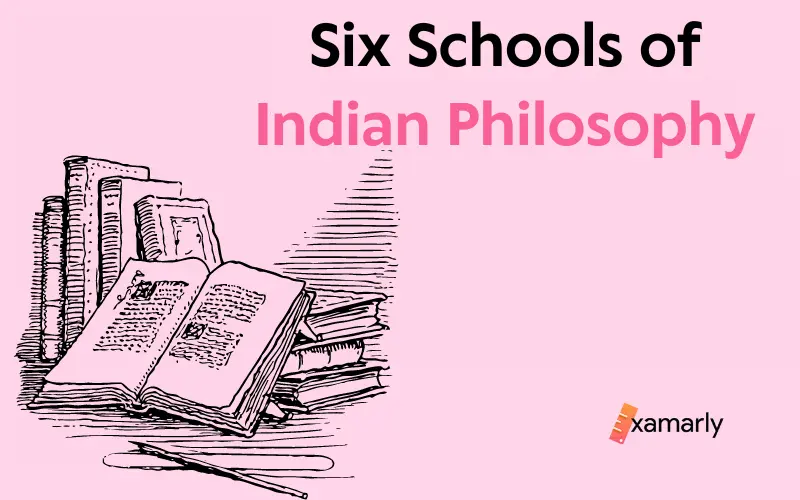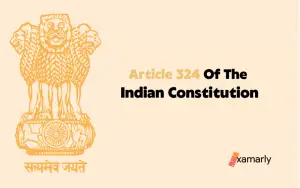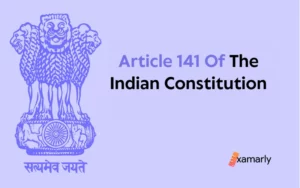The Greek word “Philo-sophia” is the origin of the word “philosophy”, which means “love of wisdom.” This love for wisdom can take many forms — it can be the desire to understand oneself or others better; it can be the quest for truth, or simply the desire for living a good life.
Philosophy is a framework or set of principles to guide one’s life. Indian philosophy concerns the search for wisdom in an ancient and complex intellectual tradition.
The foundational journey of Indian philosophy is segregated into six distinct disciplines (schools) that are Yoga, Nyaya, Vaisheshika, Sankhya, Mimansa, and Vedanta.
The six schools of Indian Philosophy represent the main currents of philosophical thought in Hinduism. Many other specific philosophies also exist in Hinduism such as Ahimsa and Aparigraha which stem from the Yoga school of philosophy.
Many schools of philosophy took birth on the Indian subcontinent. To learn more about these six Indian philosophical systems or schools of thought during your UPSC preparation, continue reading the article.
Difference Between Heterodox and Orthodox Schools
The main difference between the Orthodox and Heterodox schools in Indian philosophy is that the Orthodox ones adhere to the Vedas while the Heterodox ones do not. There are three Heterodox schools and six Orthodox schools of Indian philosophy in Indian tradition.
Vedic scriptures refer to the words heard and remembered as sruti and smriti. Orthodox school is popularly called Aastika school while Heterodox schools are popularly called Nastika schools.
You Might Also Like To Read: Philosophy Optional For UPSC
Orthodox Schools of Indian Philosophy
Indian philosophy deals with numerous topics, namely: existence, consciousness, knowledge, and freedom. Sankhya, Yoga, Nyaya, Vedanta, Vaisheshika, and Mimamsa, are the six systems of Indian philosophy. Each one of these branches aims for self-understanding and the improvement of one’s condition through attaining wisdom and improving human life.
The 6 schools of Indian philosophy are distinguished by the way they approach these ideas. Listed below are some of the main ideas of each major school of Hindu Philosophy.
Sankhya School
The oldest philosophical school of the six systems of Indian philosophy, the Sankhya, postulates that all existence is composed of two fundamental elements: the soul (Purusha) and nature (Prakriti). This dualistic philosophy has followers in both the orthodox and heterodox schools. Sage Kapila founded the first of six schools of Indian Philosophy.
Nyaya School
Nyaya means “rules”, from the Sanskrit root nyay, which means “justice”. Sage Gautama laid the foundation of Nyaya School and wrote several texts on logical thinking and reasoning. The principles of this Indian philosophical school are called Nyaya Sutra.
Nyaya, i.e. one of the systems of philosophy, believes in an analytical and methodical approach to truth. The Nyaya school makes use of various philosophical mechanisms in the hope of attaining correct knowledge. Its methodology focuses exclusively on the knowledge one obtains via the five senses. It preaches gaining correct knowledge by utilizing the five senses. This school believes that it is the only way that a person can get liberated from the birth-and-death cycle. The Nyaya School terms ignorance as Mithya Gyan (false knowledge).
The Nyaya school’s epistemology considers four of the six Pramanas as trustworthy ways of getting knowledge. They are:
- Pratyakṣa (perception)
- Upamāṇa (comparison and analogy)
- Anumāṇa (inference to attain true knowledge)
- Śabda (word, testimony of past or present reliable experts)
Followers of this school of Hindu philosophy strongly believe that valid knowledge can only be obtained from the aforementioned four valid sources.
Yoga School
Sage Patanjali established the school of Yoga. This philosophical school teaches mental and physical discipline methods. It is the concept of emancipating Purusha from Prakriti via self-awareness and body-mind discipline. The Yoga philosophy is based on Sankhya. Yoga philosophy can be found in the Upaniṣads like the Sankhya Philosophy. Yoga doctrine can be said as the most popular philosophical school of the six systems of Indian Philosophy.
Yoga doctrine, like the Sankhya school, bases its epistemology on three of the six Pramanas as credible sources of knowledge: Pratyakṣa (perception), Śabda (word, testimony of past or present reliable experts), and Anumāṇa (inference).
In other words, according to the Yoga philosophy, three ways are there to be accurate in attaining knowledge: observation, inference, and by scripture.
Vaisheshika
The fundamental principles of the Vaisheshika School are the notions that the objects in the material universe are composed of finite numbers of atoms. It is believed that consciousness arises from the force of Brahman that governs these atoms.
The Vaisheshika school, founded by the sage Kanada, is mainly concerned with matters of metaphysics. According to Vaisheshika scholars, the composition of everything in the universe is based on the five elements which are earth, water, air, fire, and sky.
Vaisheshika is the universe’s objective and realist doctrine which maintains that reality falls into categories such as substances, attributes, distinct quality, actions, genus, and inherence. Perception and inference are accepted valid knowledge sources in this School of Hindu doctrine.
Purva Mimamsa
The Sanskrit word Mimamsa which means reflection or critical study refers to a tradition of meditation that deals with comprehending the meanings of specific Vedic texts in this context.
The Purva Mimamsa philosophical school of Hinduism, based on the Mimamsa Sutras of Jaimini, states that the Vedas have ultimate authority. It illustrates that for the sustenance of balance in the universe, yajnas and mantras are essential. The belief is that humans can only reach moksha by living according to Vedic principles.
This school is recognized for its philosophical beliefs on dharma‘s nature, which are founded on Vedic hermeneutics, particularly the Brahmanas and Samhitas.
Uttara Mimamsa/Vedanta
Vedanta or the Uttara Mimamsa, which literally means “conclusion (summary) of the Vedas,” was heavily influenced by knowledge and liberation, as described in the Upanishads. The Upanishads, the Brahma Sutras, and the Bhagavad Gita are among the various sub-traditions of Vedanta based on common texts.
The Vedanta school is a monistic school of thought which is further divided into three sub-branches. They are:
- Adi Shankaracharya’s Advaita
- Ramanujacharya’s Vishishtadvaita
- Madhwacharya’s Dvaita
Heterodox Schools of Indian Philosophy
Here is an outline and overview of 3 heterodox schools of philosophy:
Charvaka (Brihaspati)
Charvaka, also referred to as Lokayata, is an ancient Indian materialistic and atheistic school of rich tradition. Although this is sometimes disputed by some scholars, Brihaspati is often regarded as the originator of Charvaka or Lokayata philosophy.
Charvaka, an ancient Hindu tradition, does not only disagree with supernatural ideas such as gods and souls but also disagrees with metaphysical ideas such as reincarnation or an afterlife.
Charvaka believed that happiness lies in finding pleasure and avoiding misery as much as one can. Charvaka disregarded the necessity for ethics or morality, arguing that as long as he is alive, he should enjoy himself.
Buddhist Doctrine
Buddhists are unconcerned about God’s existence or nonexistence. Siddhartha Gautama, the founder of Buddhist philosophy, vehemently rejected the notion of blindly accepting traditional scriptures like the Vedas.
Buddhist Philosophies teach that although life is filled with suffering( or pain), there is liberation from this suffering by following certain steps through self-control, self-discipline, renunciation of material pleasures, and accumulation of good deeds by doing good things for others without expectations to get anything in return.
Buddhism, as an atheistic school, teaches that man can achieve enlightenment by following an eightfold path which includes right thinking, right action, right speech, right livelihood, etc.
Jain Philosophy
The ancient Indian philosophical school of Jainism (or an atheistic school of thought) is called as Jain philosophy. The basic principle of anekantavada is that truth is relative to the position of the viewer and that there is no such thing as absolute truth. Jainism teaches that only the infinitely wise (those with infinite knowledge) can truly know the answer to life’s biggest question and that anyone else would only know a fraction of the answer.
To make your UPSC preparation more efficient, read Philosophy Optional Syllabus For UPSC.
Conclusion
The ultimate or the prime purpose of life according to the Indian doctrine is to be in harmony with reality’s inherent essence and to be free of suffering.
Indian philosophy is sometimes called a treasure house of wisdom. It encompasses the religious, spiritual, philosophical, and scientific views of Hinduism. However, it also incorporates Jainism and Buddhist philosophies which are not part of any other Indian tradition. Despite the diversity in this vast subject area, there are also aspects that link all of the Indian philosophies together, like the concept of Dharma.
Most of the philosophical schools that existed in India were not confined to one specific religion. Religion was just one among various factors which caused the evolution of various philosophical movements of Indian tradition. For example, Jainism and Buddhism are different religions but they share some of the core principles of Indian doctrine.
FAQ Related To 6 Schools of Indian Philosophy
What are the 6 schools of Indian Philosophy?
The 6 systems of Indian Philosophy are enlisted below:
Mimamsa
Sankhya
Nyaya
Yoga
Vaisheshika
Vedanta
What is the difference between Orthodox and Heterodox Schools?
The Orthodox Schools of Indian Philosophy are based on the authority of the Vedas and believe in the existence of a Supreme Being or God. On the other hand, the Heterodox Schools reject the authority of the Vedas and challenge the existence of a Supreme Being or God.
How do the Orthodox and Heterodox Schools compare in their views on the self and the universe?
The Orthodox Schools generally believe in the existence of a permanent self and the universe. On the other hand, the Heterodox Schools challenge the existence of a permanent self and consider the self and the universe to be constantly changing and impermanent.






